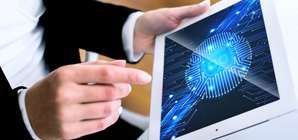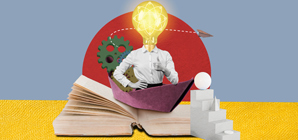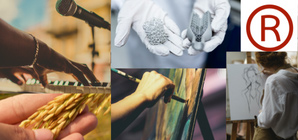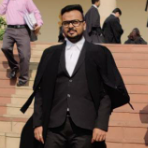Copyright of AI generated works
Posted On : September 23, 2023
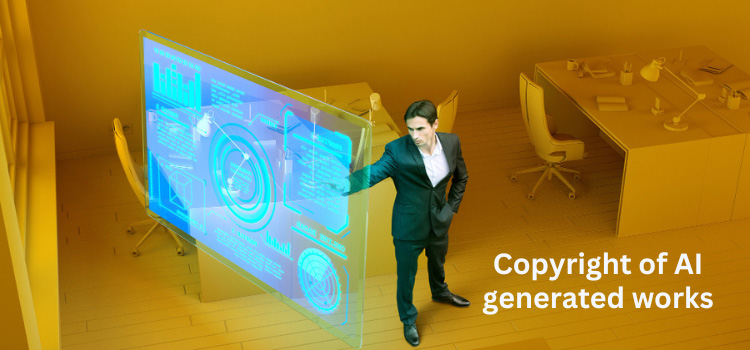
Table of Contents
Authorship and Ownership of AI generated work
The idea of an ‘author’ is heavily construed in the belief of an intentional act of creation. It is believed, and has been upheld by the courts in various cases, that in order to grant authorship rights or ownership to a work, it must be original, a creation of human authorship, and independent. An AI is incapable of holding human aspects such as rationality, creativity, emotion, and intellect in order to produce a work that would meet the above criteria.
In the name of DABUS, an artificial intelligence system created by Stephen Thaler, the Copyright Review Board of the United States Copyright Office declined to register copyright in the work "A Recent Entrance to Paradise". The aforementioned copyright application was submitted in 2018 by DABUS, who identified himself as the author and claimed that the AI had independently generated the work. The application was turned down by the copyright office because "it lacks the human authorship necessary to support a copyright claim." A similar stance was taken and observed in the case of Zarya of the Dawn, a comic book which consisted of artwork generated by AI.
In the Indian context, the Supreme Court ruled in Rupendra Kashyap v. Jiwan Publishing House Pvt. Ltd. that the person who compiles the questions for an exam is the author of the examination paper; this person must be a natural person, a human being, and not an artificial person; Central Board of Secondary Education is not a natural person, and it would only be permitted to assert copyright in the examination papers if it established.
This has further been reiterated by the courts in various other judgements.
The idea that an author can only be a natural person has been further laid down by the Copyright Board in Form 14 of the Practice and Procedure Manual that was issued in the year 2018.
However, courts have recognised co- authorship of AI generated works. This came up in the case of RAGHAV, an AI who had generated artistic work with respect to ‘Suryast’, a painting based on the work of Vincent Van Gogh, ‘Starry Night’. The owner of the AI App, Mr. Ankit Sahni, was the other co-author. The Indian Copyright Office first denied a request claiming AI ('RAGHAV') as the sole author of a piece of art. The owner of the AI and another AI were listed as co-authors for another piece of art, though, in a second application that was submitted. The same was also followed in Canada.
Cases where AI has not been granted copyrights
There have been many cases at an international court wherein courts across the globe have denied copyrights to an AI generated work, or a work that was not done through a natural person.
Naruto v. Slater (2018)
Naruto, a crested macaque, used a camera that wildlife photographer David Slater had left unattended to take a number of self-portraits in 2011. The photos were featured in a book by Slater after receiving widespread notice. In a lawsuit filed on Naruto's behalf, the animal rights group PETA asserted that the monkey owned the rights to the images. The court ultimately decided that since copyright law is designed for human creators, animals cannot possess copyrights.
AIVA music composition case
Amper Music created the AI system known as AIVA (Artificial Intelligence Virtual Artist), which creates music compositions depending on user input. A group of composers of music asserted in 2018 that the music produced by AIVA and credited to them had been utilized without their consent and in violation of their copyrights. The AI's contributions, the court claimed, were more analogous to musical instruments than creative works, and as such did not require independent copyright protection.
Equals Three, LLC v. Jukin Media, Inc.
In a user-created content dispute, Jukin Media, a business that specializes in licensing viral videos, made an effort to assert copyright over a collection of user-submitted video clips that had been selected and arranged using AI algorithms. Despite the AI's curation, a court determined that the compilation lacked the originality necessary for copyright protection and was simply a collection of pre-existing information.
Arguments in favor of granting copyright
Those who propagate for the AI to be granted copyrights highlight the difference between an AI assisted work, and an AI generated work. In simple terms, an AI assisted work required a human to feed it data, and provide it with certain specific instructions in order to be able to produce an output. However, the latter doesn’t require specific code or data to be fed into it. It is created through an algorithm, and learns patterns and styles from the environment, thereby producing an output.
The argument put forth is that an AI generated work does meet the required essentials to be granted a copyright. The fact that the AI tool is capable of producing an output after learning from its environment suggests that it is capable of holding human attributes such as rationality. Further, such works are to be considered as creative as it was based upon the AI’s own understanding and abilities, and not on a specific code.
As a counter argument to the necessity of human touch for copyright, it is argued that AI works are based on programming and parameters, which are provided by human intervention. To out any human involvement. Therefore, arguing that an AI generated work is to be granted copyrights.some extent, this argument is valid, however simply setting up codes does not automatically make a human the creator of every AI creation, especially when the work was completed by AI with.
Conclusion
The existing legal frameworks with regards to copyright are not inclusive of AI, and are not equipped to handle the granting of copyrights to AI. However, the works of AI systems are probably not going to be denied intellectual property (IP) protection in the near future just because the justification is that they are neither people or legal entities. It is crucial to accept and apply scientific and technological developments, particularly advances in artificial intelligence (AI), in the goal of equitable growth and prosperity. Striking a balance between acknowledging the successes of AI systems and making sure that human creators and contributions are properly acknowledged and safeguarded is vital. Legal frameworks and global conversations will probably continue to influence how AI-generated works are treated, including whether or not they are eligible for IP protection, as AI technology develops.

